Here’s a colourful extract from our dear friend Elaine Hurford’s diary written shortly after she moved from Cape Town to Prince Albert in 1994:
“The weather is still relentlessly hot, with howling winds each afternoon. I am lying on my bed on a wet towel in a blacked-out room – the shutters are closed outside and in, leaving the tiniest crack of light. Even that is too much, too bright, too hot, too dazzling, that small sharp ray.
“I still can't use the outdoor shower. Karel and Jakob (the builders) disappeared half-way through – they’ve gone back to somebody-or-other’s farm. Plaastoe – how often I hear this. They will, I’m told, be back to finish this weekend. We’ll see.”
Elaine had moved into a semi-derelict farmhouse that had not been inhabited for 15 years. By humans, that is.
“In the mornings I sometimes wake up to the patter of tiny feet – a wagtail or two, hopping about the bedroom floor. I think they come in through the gap above the kitchen door. The dogs just blink at them. While the farmhouse stood open and empty, the place was theirs and they’re still welcome now.”
But it wasn’t only the birds that called it home. Elaine found the other inhabitants far less charming.
“In the Karoo you don’t own a house – it’s on loan from the insects and at the whimsy of the environment; bloodsucking swarms of mosquitoes; grasshoppers, crickets, those annoying, knocking tok-tokkie beetles; praying mantises, and some other kind of mothy thing, quite gorgeous really, with two pairs of sheer tapered wings, patterned with black animal print.
“Now I just open the doors and admit them; after all, they live here too. There’s a hive of activity on the floor, on the walls, the lights; ants scurrying off with huge carcasses of crickets, corpses of furry, gilded beetles, or anything else they can scavenge; moths are busy around the lamps. If you switch the lights off, they hang on the television screen. Large grasshoppers are chasing praying mantises up the walls, small grasshoppers are scooting about doing what small grasshoppers do; even the odd stray frog enters, bemused perhaps by the heat.
“Sometimes there are scorpions, and black patent leather centipedes. There was a bat in the dairy, hanging on the beams. All are welcome but the scorpions. A swift stamp must wipe them out before the dogs see them and get stung.”
The flood of goggas later retreated. Elaine found that leaving on an outside light lured them to the stoep, where the wagtails, thrushes, Karoo chats and bold Cape robin-chats feasted in the morning.
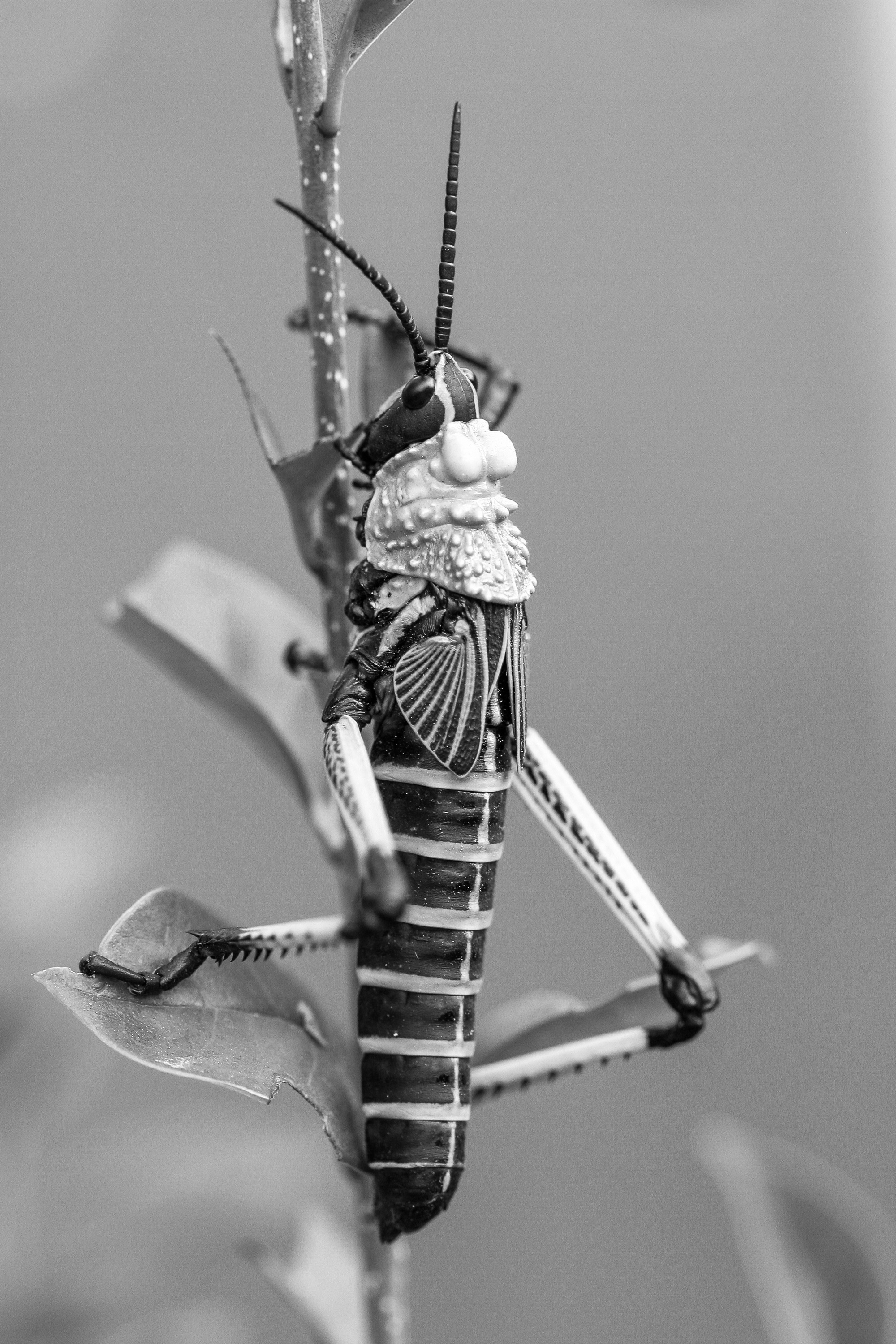 You may one day find you have a small locust swarm in your platteland garden. Image: Chris Marais
You may one day find you have a small locust swarm in your platteland garden. Image: Chris Marais
 There are always creepy-crawlies – and some are dangerous, like this scorpion. Shake out your shoes and slippers before donning them. Image: Chris Marais
There are always creepy-crawlies – and some are dangerous, like this scorpion. Shake out your shoes and slippers before donning them. Image: Chris Marais
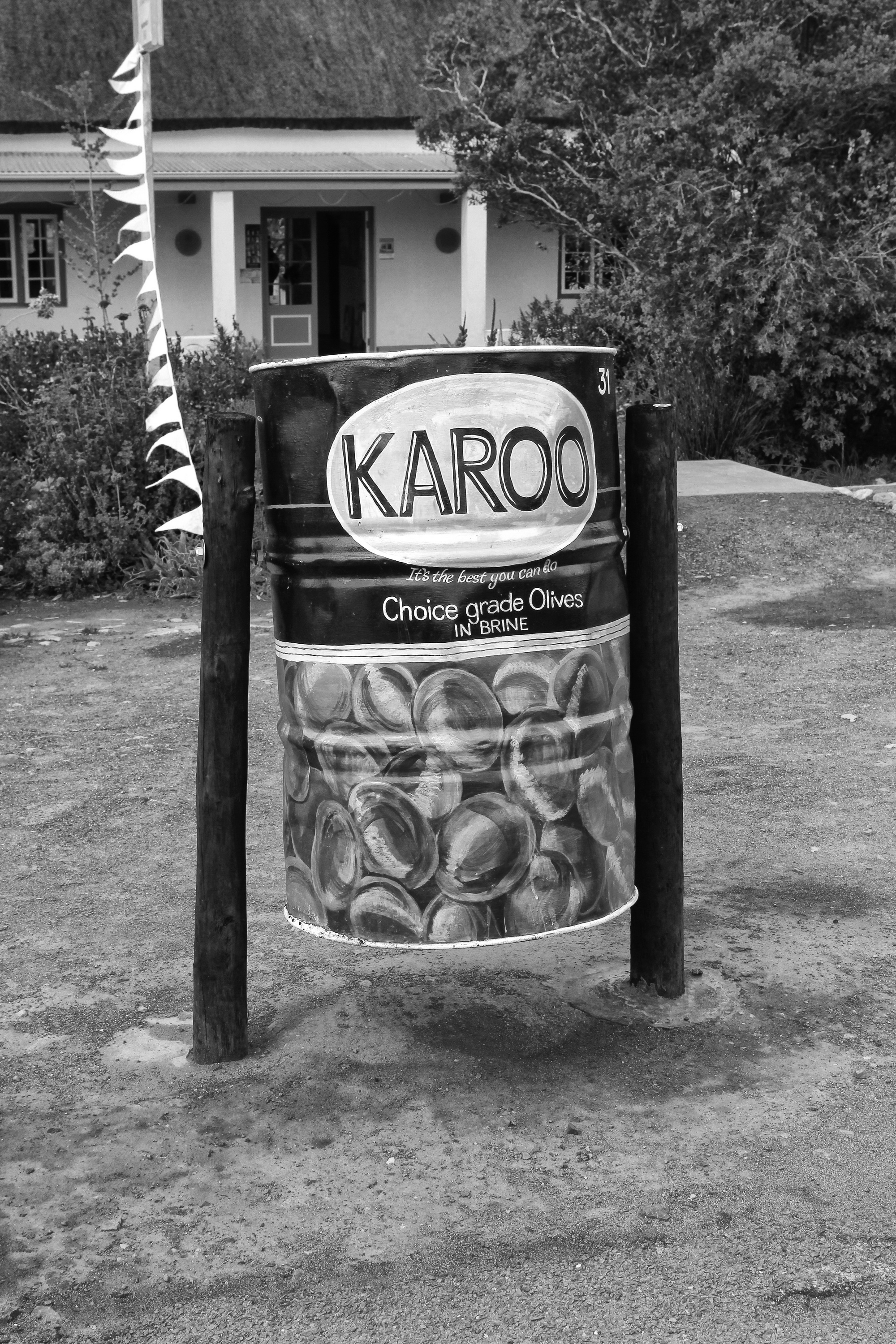 Small towns are not always idyllic, but there’s always something to make you smile. Image: Chris Marais
Small towns are not always idyllic, but there’s always something to make you smile. Image: Chris Marais
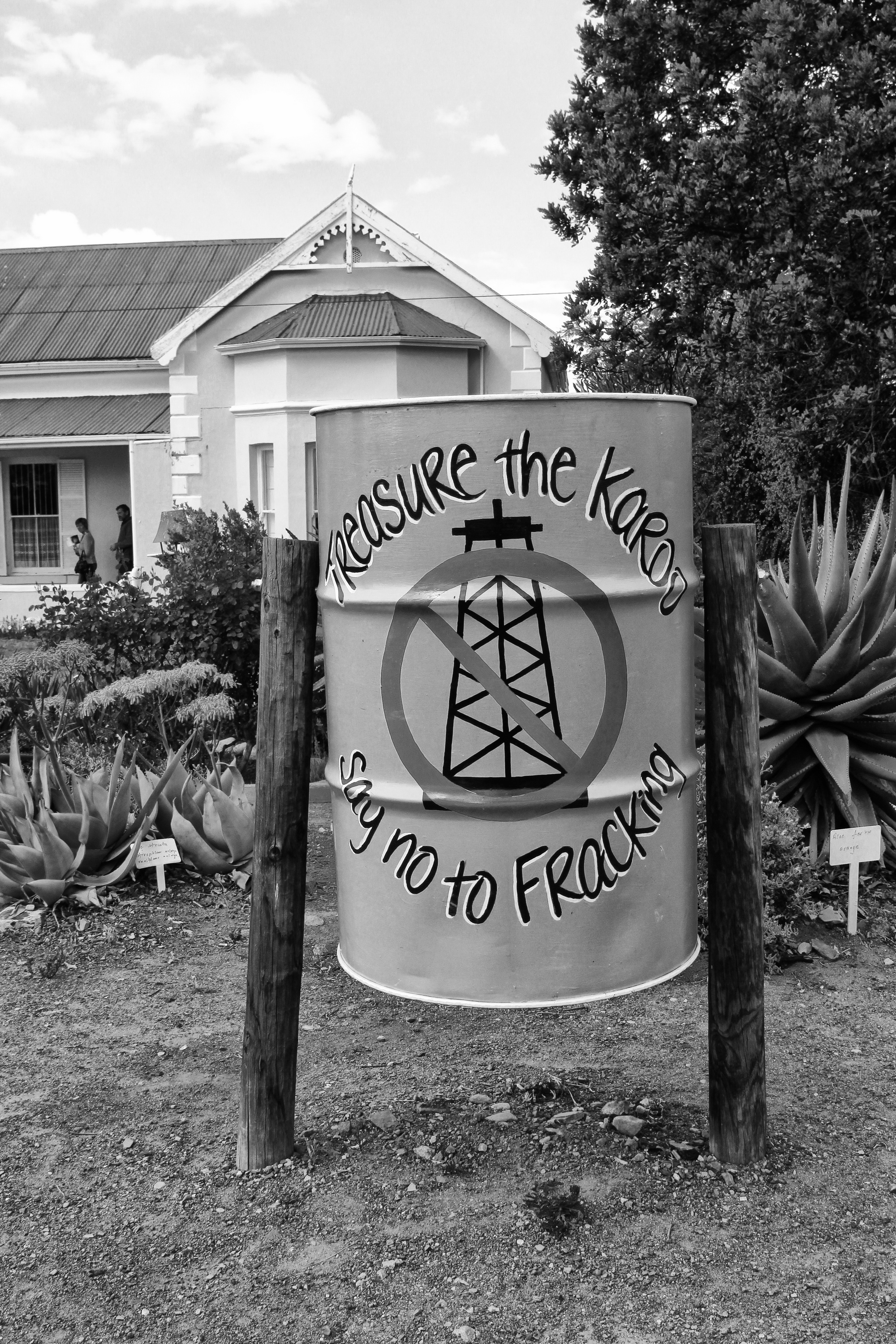 Locals often have to find imaginative ways to battle against unwanted developments like fracking. Image: Chris Marais
Locals often have to find imaginative ways to battle against unwanted developments like fracking. Image: Chris Marais
Dysfunctional municipalities
Then there is the ever-present risk of choosing a house set in a town or municipality that starts spiralling downwards. Back in 2012, when they were in Greylingstad, John and Liz Barrow sent us an email about their life in the country:
“Our property is the last in the dorp and against the koppie. The setting has beautiful views and we have converted two houses into comfortable living spaces. We have even coaxed a good veggie garden from the crappiest soil imaginable.
“We don’t regret our move at all. But the municipality has become totally dysfunctional. There has been a complete turnover of staff and what smidgen of institutional memory there was, has disappeared. The streets are full of rubbish, people are cutting down all the trees and unfortunately, the community is completely apathetic. John and another couple started a Greylingstad Residents Group three years ago and have valiantly tried to engage constructively with the municipality and townsfolk.
“We hadn't realised how much we would be affected by the lack of caring about the way the dorp looks or about the environment. We would dearly like to be in a place where people actually give a damn.”
Liz and John later found another town – Napier – and are very happy there. But they still miss that glorious koppie.
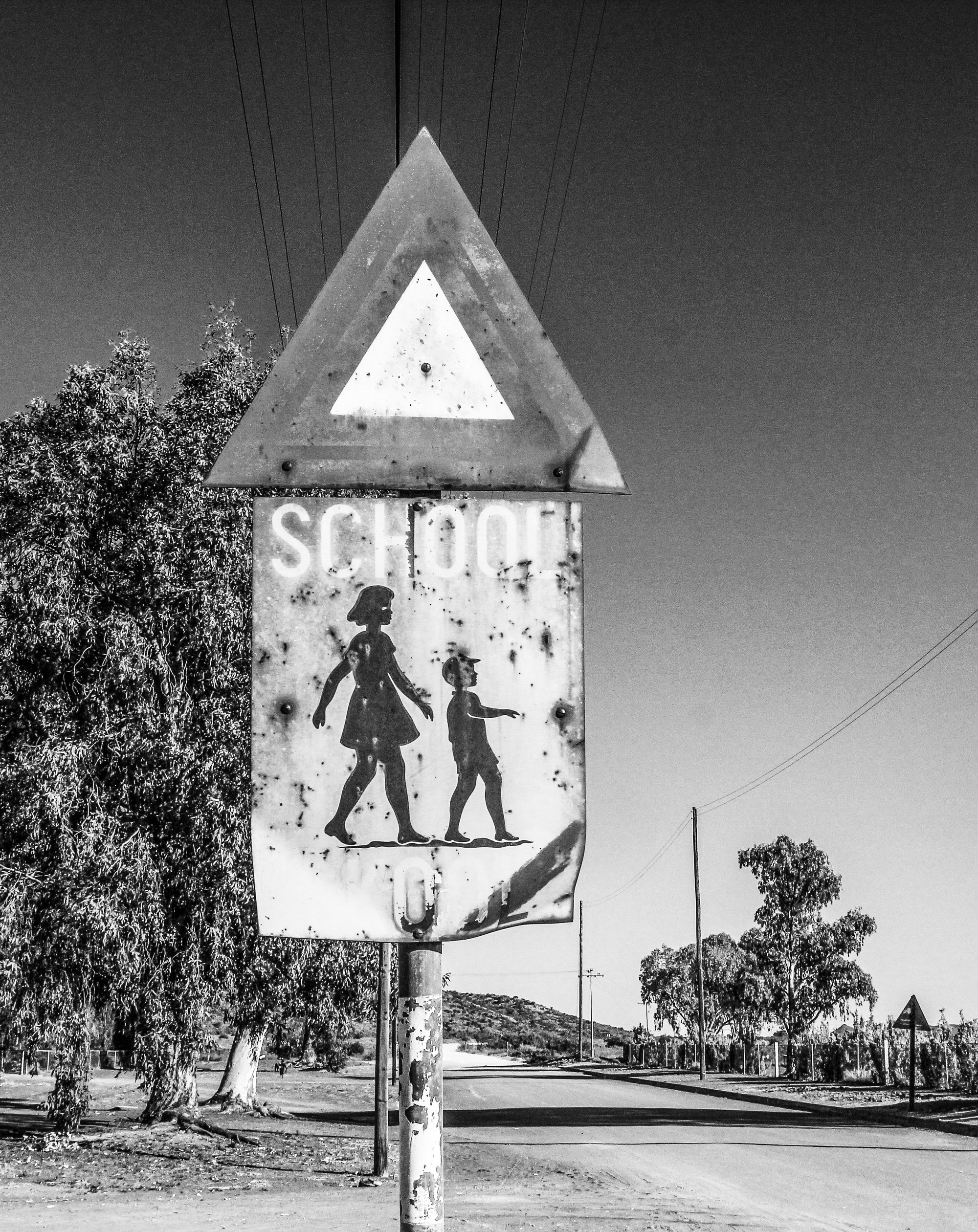 A platteland town without a vibrant school can quickly lose economic traction. Image: Chris Marais
A platteland town without a vibrant school can quickly lose economic traction. Image: Chris Marais
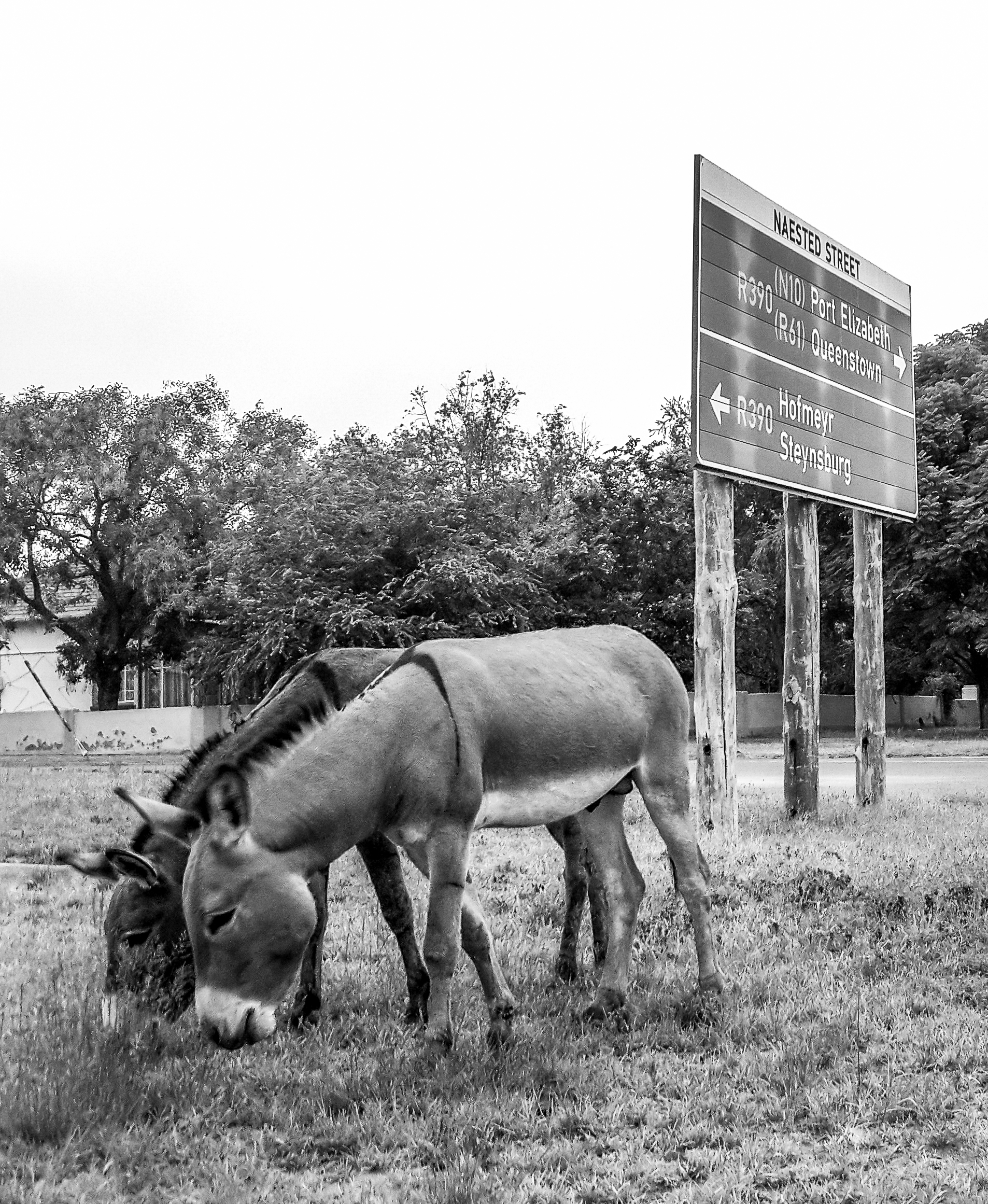 You may grow lovely roses, you may plant a delicious vegetable patch, but be aware that wandering donkeys, goats and sometimes cows will find them irresistible. Image: Chris Marais
You may grow lovely roses, you may plant a delicious vegetable patch, but be aware that wandering donkeys, goats and sometimes cows will find them irresistible. Image: Chris Marais
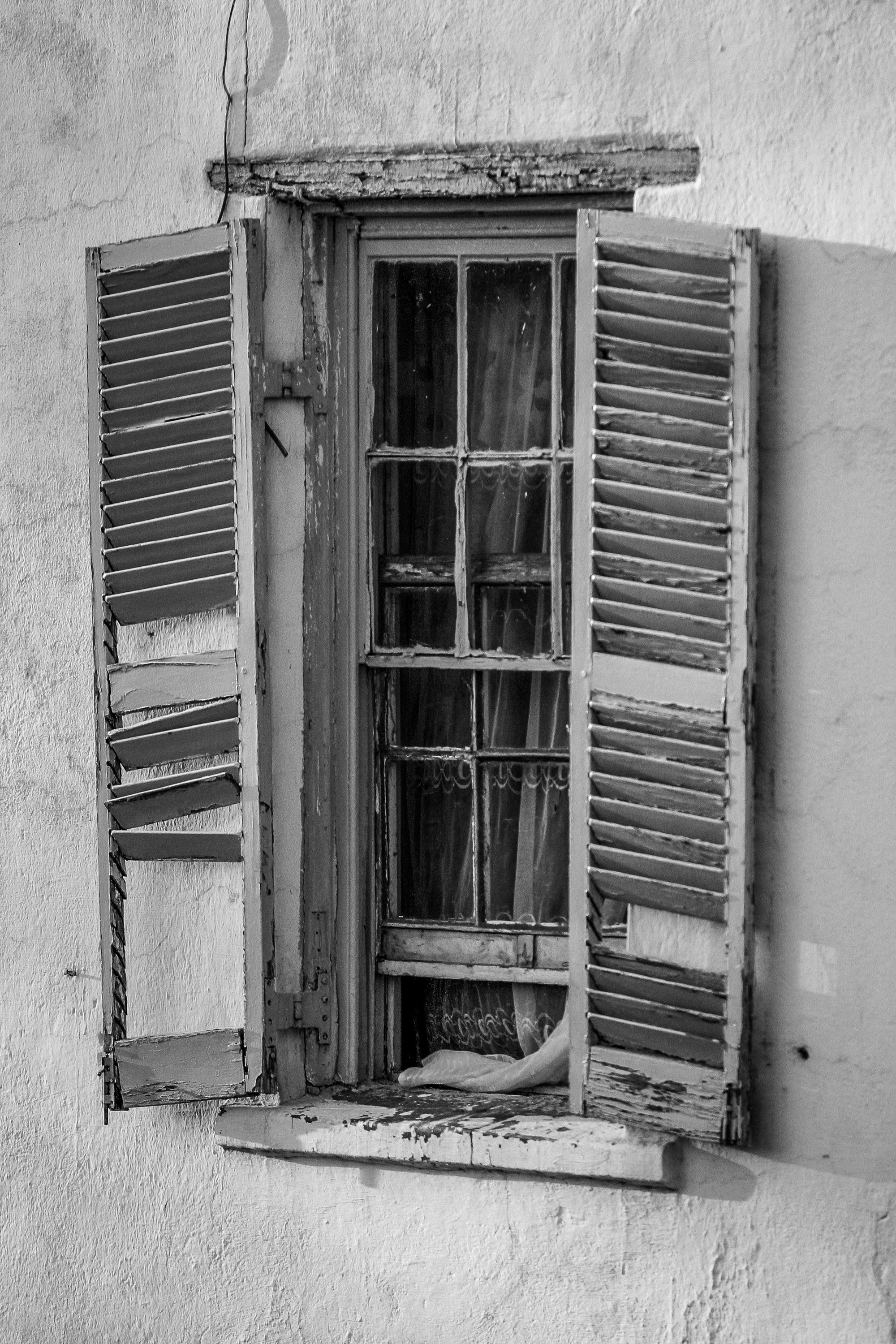 Never come to a small town with debt. It leads to a spiral of poverty that is almost impossible to escape. Image: Chris Marais
Never come to a small town with debt. It leads to a spiral of poverty that is almost impossible to escape. Image: Chris Marais
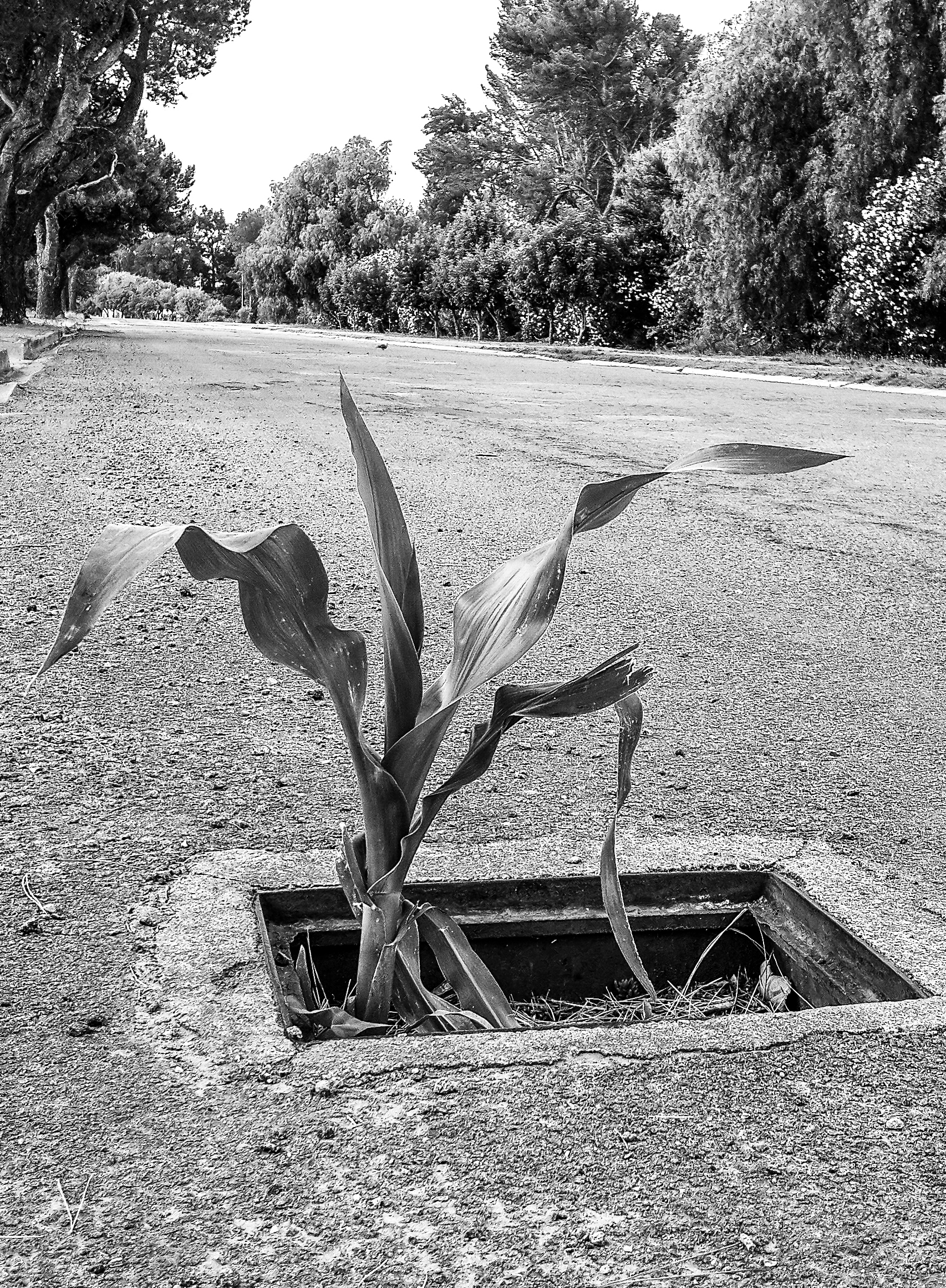 Municipal dysfunction and neglect often undermine the investment potential of small towns. Image: Chris Marais
Municipal dysfunction and neglect often undermine the investment potential of small towns. Image: Chris Marais
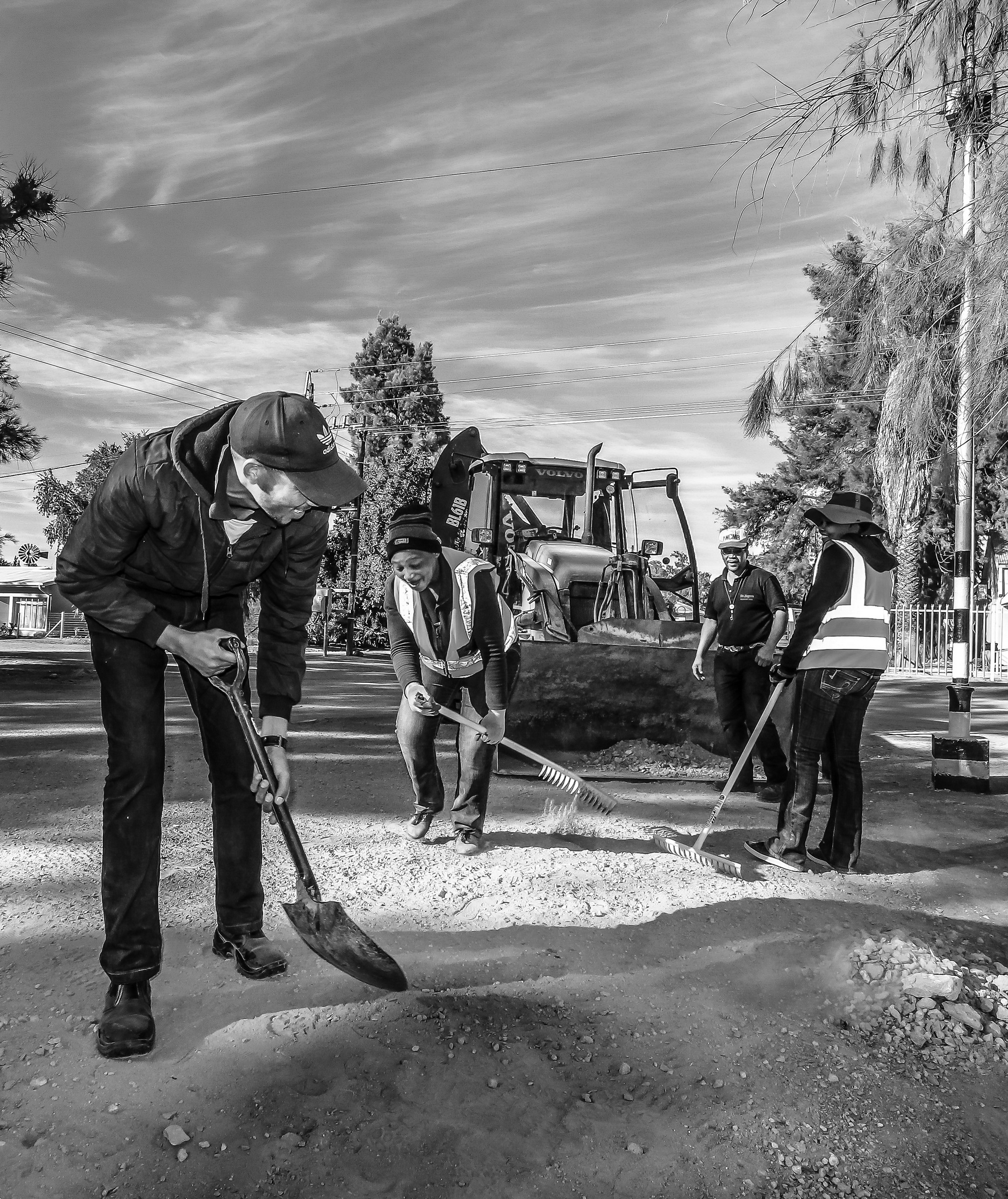 The fixing of potholes. Image: Chris Marais
The fixing of potholes. Image: Chris Marais
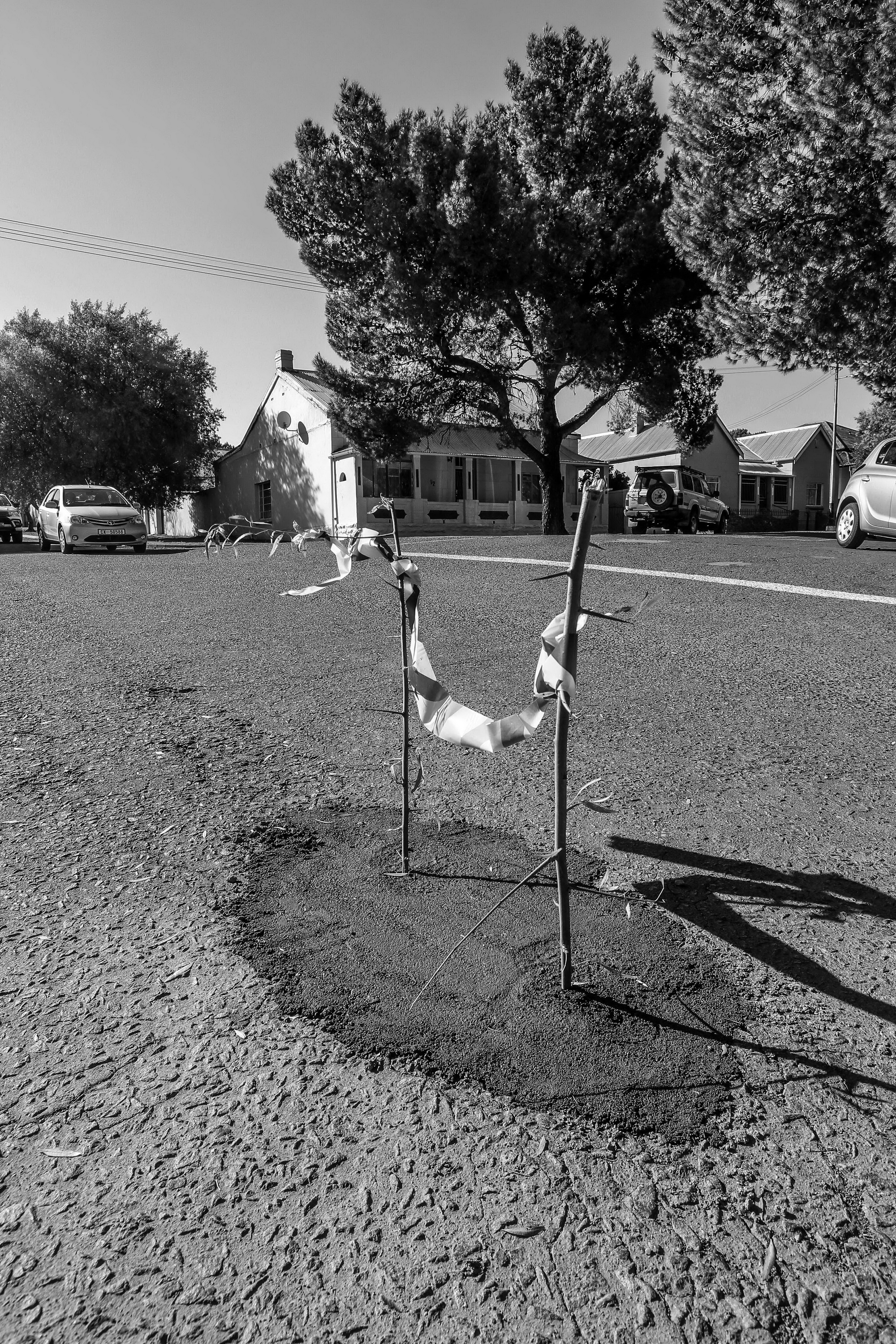 Sometimes locals have to take things into their own hands. Image: Chris Marais
Sometimes locals have to take things into their own hands. Image: Chris Marais
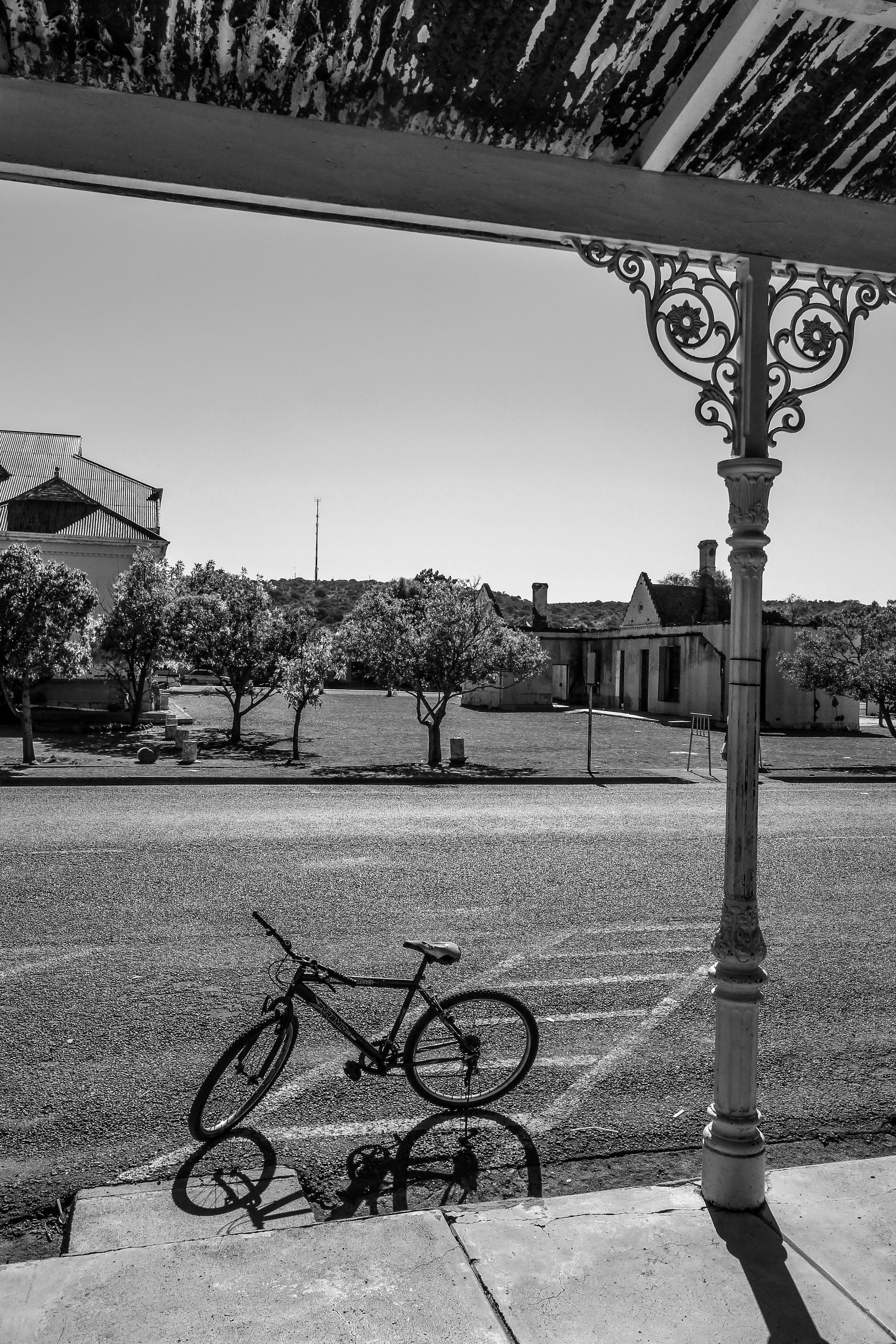 Jagersfontein in the southern Free State had beautiful municipal buildings until they were burnt down in service delivery protests – a very common phenomenon in small towns with badly-run municipalities. Image: Chris Marais
Jagersfontein in the southern Free State had beautiful municipal buildings until they were burnt down in service delivery protests – a very common phenomenon in small towns with badly-run municipalities. Image: Chris Marais
Exposed to everything
Every newcomer to a dorp remarks on the gut-wrenching levels of poverty. Of course, it is just as prevalent in cities – but there it’s easier to avoid seeing. As Klaradyn Grobler of Richmond says, “Small town living means you are exposed to everything.”
Famous crime novelist Deon Meyer fell in love with the Northern Cape village of Loxton in 2007, while he was doing research for a book. He bought property there and built a holiday home, heading off to the village as often as possible.
“People in Loxton have got time for each other. They tell stories and chat – and not just on Facebook or Twitter. I’m mad about motorbikes and there is nothing to beat the Karoo’s dirt roads. It is the most wonderful place.”
He noted: “For middle-class urbanites, it is all too easy to miss – and forget about – the poverty in big cities. We tend to travel mostly between home and work, or within our neighbourhoods for socialising or shopping, physically and mentally removed from the struggle of the disadvantaged. But in a little place like Loxton, there is no escaping it.
“Despite the town’s beauty and serenity and stoic people, the poverty is right there in front of you. Abject and unmissable, a constant reminder of South Africa’s biggest challenge.”
Read in Daily Maverick: Thinking of moving to small-town South Africa? Look around before you take the leap
Deon went on to become an important driver in the I Am Living Trust, which uplifts many children’s lives in Loxton.
Many incomers are spurred to do something socially positive in their new towns, but it is not easy.
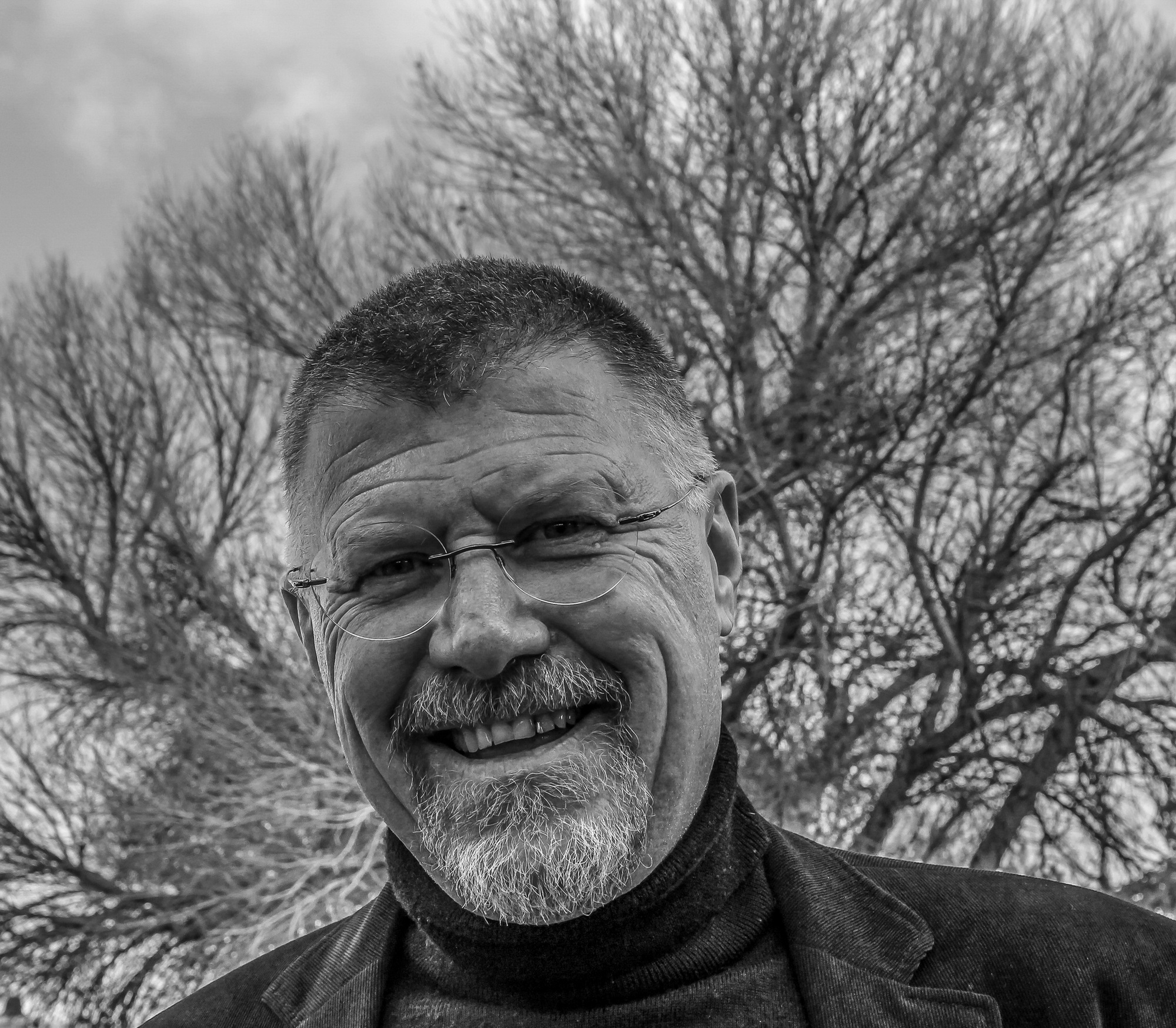 International bestselling crime novelist Deon Meyer moved for a while to Loxton and became part of a local upliftment project. Image: Supplied
International bestselling crime novelist Deon Meyer moved for a while to Loxton and became part of a local upliftment project. Image: Supplied
Starved for affection
Jenny Ballantyne, who came to Murraysburg and started a bed and breakfast in town, quickly learnt that giving money or even food to poor people who knocked at the door didn’t really help.
“All that happens is that they then see you as an easy mark and keep coming back. So I wondered what I could do that would have value to them, something that was not food or money.
“The next time some children came to the door and asked for a randjie, I said to them I couldn’t give them that, but I could give them a hug.
“So I bent down and embraced each of them in turn, and I wish you could have seen their faces. They were completely transformed. I suddenly realised that these children are starved for affection and attention.
“A few days later, a girl came to the door with her younger brother. She mumbled and had to repeat herself about five times before I suddenly clicked. She had brought her brother to me for a hug.”
Rumours and fables
Other pitfalls are less visible – like gossip and the unseen currents of human relationships. Katrin Allemann, a Swiss-German who met and married South African Ian while they were both backpacking around the world, now lives in the village of Nieu-Bethesda. She warns:
“The smaller the town, the harder the gossip. You also have to be really circumspect because you may unwittingly walk into family feuds. You talk to someone and then suddenly there’s another person who just won’t speak to you because now you’ve been ‘socialising with the enemy’.”
Ian advises: “Be aware of the rumour mill, then learn to ignore it.” And then there’s the moment when you realise that you have become a curtain-twitcher too, just like your nosy neighbour…
Health, quiet and fresh air
Shortly after we moved to Cradock, our neighbour and friend Walter Schulze mentioned that he liked escaping to the family farm as often as he could – “to get away from the hustle and bustle of Cradock”. With the insane clamour of Johannesburg still roaring in our ears, we hooted with laughter.
Months later, we realised he did actually have a point. People bang on (us included) about the peacefulness of the platteland, but here’s my question: Have you ever heard an empty livestock truck clattering past your house in the very early hours of the morning? And who in Richmond can forget that Sunday when an over-enthusiastic Ockert Botha rang the church bell 126 times after his appointment as the stand-in koster (verger)?
Chickens are fairly common in backyards, and yes, roosters do crow at ungodly hours.
The air is delightfully fresh and clean – until it’s not. Small towns have a filthy habit of burning garbage at waste dumps and the dreadful smells and toxic dioxins sometimes float right over town, unfiltered.
Pesticides and herbicides are often sprayed in commercial fruit farms and crop-growing areas. This, along with unfamiliar flowering plants and pollens, can make hay fever and sinusitis far more common than you might expect.
Health services are often quite sketchy. Some towns are lucky enough to have good doctors, pharmacies and working hospitals. Others are not. Also, the worst drivers are to be found in small towns all over the world. Motorists meander at 20km/h for no discernible reason. They do unexpected U-turns or suddenly speed around corners, taking them wide to avoid a dog crossing the road.
Loxton regularly used to have electricity blackouts after the farmers had a few too many and reversed into the power poles which, quite perversely, are in the middle of the streets. Be prepared for anything. Also, prepare for the horror of becoming one of those frightful drivers yourself one day. It happens.
Oom and Tannie
Brace yourself for the experience of being called Oom and Tannie by country children, bless their polite little souls. What comes as something of a surprise though, is that adults who perceive themselves to be younger than you by a decade or more will do the same thing.
If you sport some grey or white hair, car guards and passers-by will call you Ouma and Oupa, or Oupie for short.
Another rather startling platteland phenomenon is the often eccentric use of sleepwear. It is not unusual to see people floating around in slippers and fluffy gowns long after lunchtime on weekends.
Incomers and tumbleweeds
Most newcomers to small towns in South Africa are bowled over by the immense kindness, generosity and helpfulness of locals. But there are exceptions: some locals resent the know-it-all attitude of fresh arrivals (part-time residents in particular) who want to change the way the town has always worked.
Incomers are often treated with some degree of suspicion for years, and considered ‘rolbosse’ (tumbleweeds). Erwin and Alta Coetzee experienced this for a long time after they moved from the western goldfields near Johannesburg to Calvinia.
“One day, two years after we’d arrived, someone asked us where we intended going next. I said I wasn’t sure, but that I knew where my body would go – the local cemetery. Only then were we really welcomed.”
Klaarstroom’s Jeremy Witts-Hewinson remembers that his father, the Anglican priest in Graaff-Reinet back in the 1970s, struggled to be accepted. When he was eventually transferred out, a parishioner approached Father Witts-Hewinson to say how sorry he was that he was leaving.
“How long have you been here?” he enquired of the priest.
“Seven years,” was the reply.
“What a pity,” said the parishioner. “We were just beginning to take you seriously.” DM
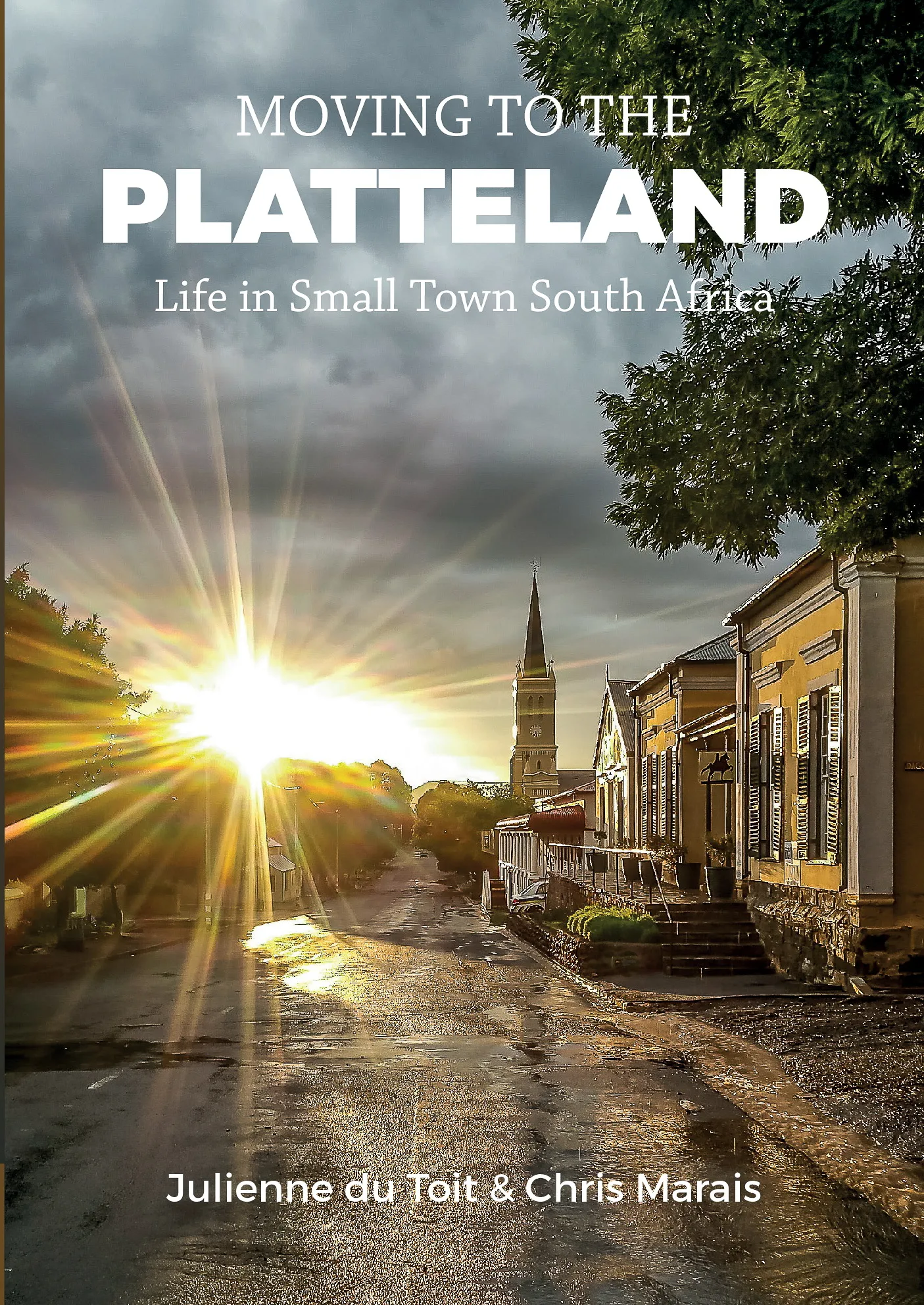 ‘Moving to the Platteland: Life in Small Town South Africa’ by Chris Marais and Julienne du Toit.
‘Moving to the Platteland: Life in Small Town South Africa’ by Chris Marais and Julienne du Toit.
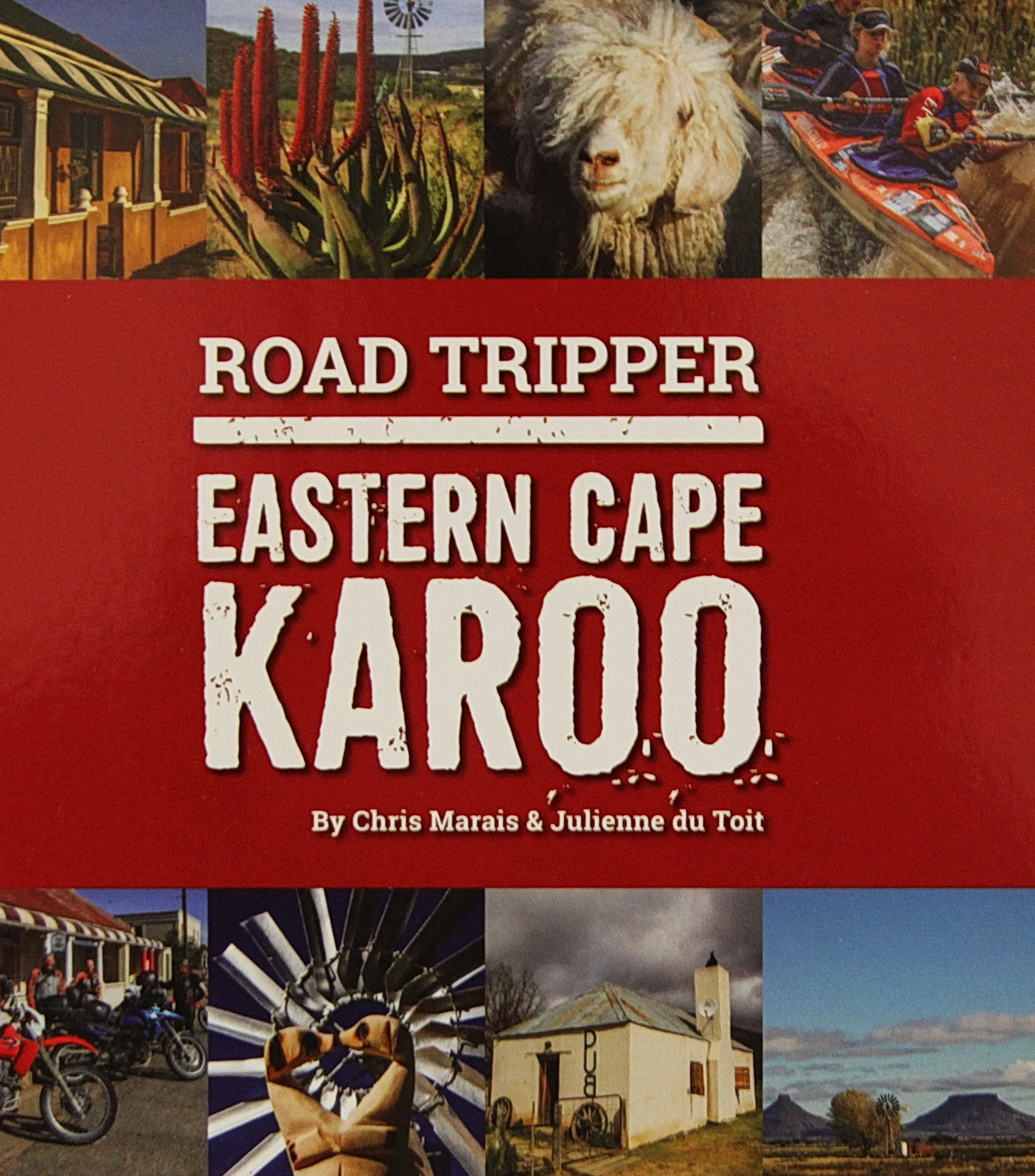 ‘Road Tripper: Eastern Cape Karoo’ by Chris Marais and Julienne du Toit.
‘Road Tripper: Eastern Cape Karoo’ by Chris Marais and Julienne du Toit.
This is an excerpt from Moving to the Platteland by Chris Marais and Julienne du Toit. The authors are offering a two-book special of Moving to the Platteland: Life in Small Town South Africa and Road Tripper: Eastern Cape Karoo for only R520, including courier costs in South Africa. For enquiries, contact Julie@karoospace.co.za.




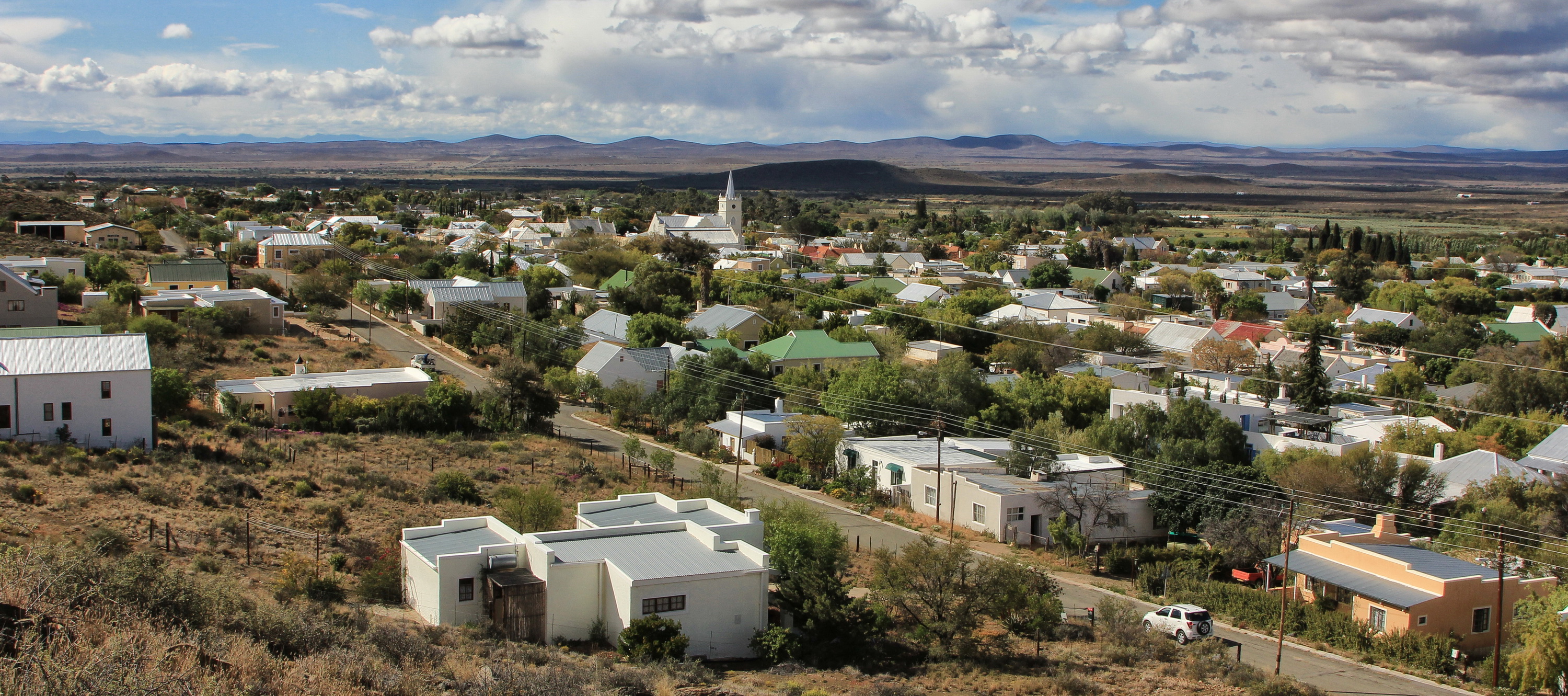 ‘Road Tripper: Eastern Cape Karoo’ by Chris Marais and Julienne du Toit.
‘Road Tripper: Eastern Cape Karoo’ by Chris Marais and Julienne du Toit.